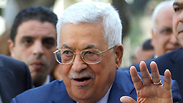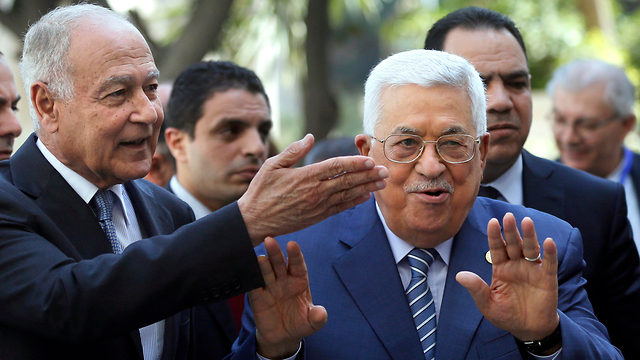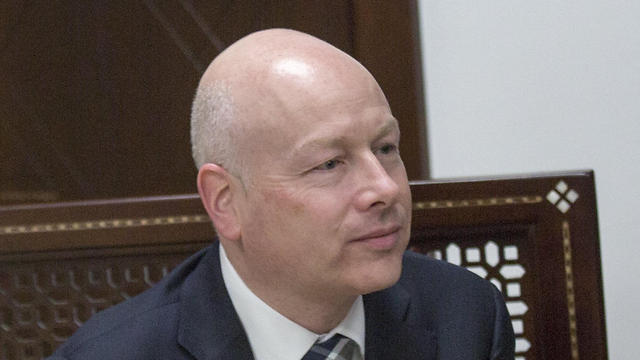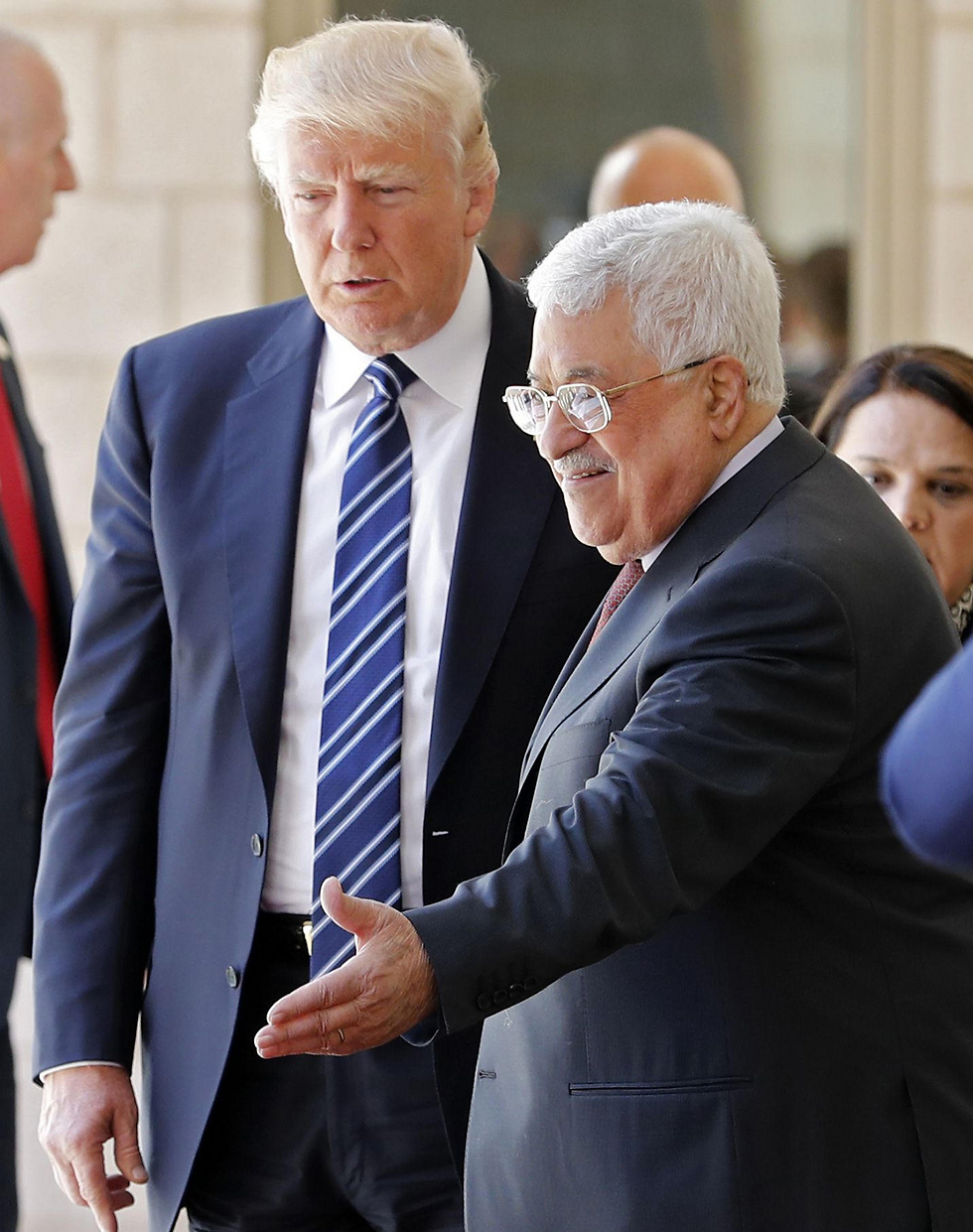
Palestinians officially decline invitation to US-engineered Bahrain conference
Palestinian Authority makes the announcement just hours after Trump's Mideast envoy makes an impassioned speech at Security Council meeting, pleading with the Palestinians to attend the June 25-26 economic 'workshop'
Palestinian officials announced Thursday they will not take part in a White House-engineered economic workshop in Bahrain next month, meant to serve as the first part of President Donald Trump's long-delayed Middle East peace plan, dubbed “the deal of the century.”
In a statement issued by the Palestinian Authority, the PLO and non-PLO affiliated factions, including the private sector, emphasized they will not participate in the conference.
The June 25-26 conference will bring together government and business leaders to help jump-start the economic portion of the broader US peace initiative, which is also expected to include proposals for resolving thorny political issues at the heart of the decades-old Israeli-Palestinian conflict.
The announcement comes just hours after the long-awaited plan's key architect, Jason Greenblatt, said in a wide-ranging speech at the Security Council’s monthly Mideast meeting on Wednesday that the Palestinians should attend the workshop where the U.S. will roll out its economic plan “that can pave the way for Palestinian prosperity.”
Greenblat, President Donald Trump’s special envoy for international negotiations, also warned that “nothing can be meaningfully fixed” until Gaza’s Hamas rulers and Palestinian Islamic Jihad renounce their vows to destroy Israel and stop carrying out violent acts.
The special envoy said the first step is for the Security Council “to admit that Hamas and Palestinian Islamic Jihad are the primary barrier to the dreams of those residents of Gaza who want to live in peace, raise their families and find meaningful work.”
“When will the Security Council say this out loud?” Greenblatt asked council members. “When will we clearly reject this terrorism?”
On the rollout of the economic provisions in the U.S. peace plan, Greenblatt told the council “it would be a mistake” for the Palestinians not to attend the meeting in Bahrain in June because it will showcase a prosperous future for them if a political solution can be achieved.
The plan, which has been two years in the making, envisions large-scale investment and infrastructure work in the Palestinian territories. But the central political elements remain mostly unknown.
The Palestinian Authority pre-emptively rejected the entire U.S. peace plan saying any effort that ignores the Palestinian people’s aspirations for an independent state is doomed to fail. The Palestinians want their new state in the West Bank, East Jerusalem — which they want as their capital — and Gaza, lands captured by Israel in the 1967 war. A senior Palestinian official has likened the White House plan to “financial blackmail.”
The Palestinian demand for a two-state solution is supported by the U.N. and almost all of its 193 member-states, and it was reiterated at Wednesday’s council meeting by the Palestinian deputy U.N. ambassador Feda Abdelhady-Nasser.
“No one can deny that we are in need of new efforts and new energy to overcome the suffocating political deadlock, least of all us,” she said. “But ‘new’ cannot mean trampling the law or mocking and discarding the longstanding international consensus” on a two-state solution.
Abdelhady-Nasser added that Palestinian leaders can’t accept improving the lives of Palestinians while Israel’s “illegal occupation continues, nor have the Palestinian people endured decades of suffering and waited nearly half a century for freedom to resign themselves to ‘limited autonomy.’”
Greenblatt then lashed out at the U.N. agency that helps 5.3 million Palestinian refugees, calling it a failure and a “a band-aid” that is “running on fumes.” He reiterated a previously rejected U.S. proposal for host countries or non-governmental agencies to take over providing services for the refugees.
He said the U.S. decided to cut off all funding for the U.N. Relief and Works Agency, known as UNRWA, because its “business model ... is inherently tied to an endlessly and exponentially expanding community of beneficiaries” and it is an “irredeemably flawed operation” that “is in permanent crisis mode.”
The U.S. reduced its $360 million annual contribution to UNRWA in 2017 to just $60 million in 2018 and nothing this year.
Greenblatt said the U.S, tried to start a conversation with host countries and international and local non-governmental agencies to take over services before it cut aid to UNRWA.
“No one wanted to engage in that conversation back then,” he said. “We remain ready to begin that conversation now. It is time to start.”
Israel’s U.N. Ambassador Danny Danon backed the U.S. effort to get rid of UNRWA, accusing the agency of “empowering the refugee problem instead of trying to solve it,” and of inciting violence against Israel instead of rehabilitating Gaza.
“The organization’s schools have been transformed into terror and incitement infrastructures, with textbooks distributed on the ground denying Israel’s existence,” he said, and “UNRWA employees assist terrorist groups.”
But UNRWA Commissioner-General Pierre Kraehenbuehl told the council that Palestinian refugees face a “near complete absence of a political horizon and he is “strongly convinced that preserving UNRWA’s services is a crucial contribution in terms of human dignity and regional stability.”
After the U.S. cut off add last year, Kraehenbuehl said, UNRWA mobilized $1.2 billion for its schools, health centers and other operations — and he appealed for the same amount this year.
“It is political inaction — not the action of humanitarian organizations — that perpetuates conflicts,” he said.













